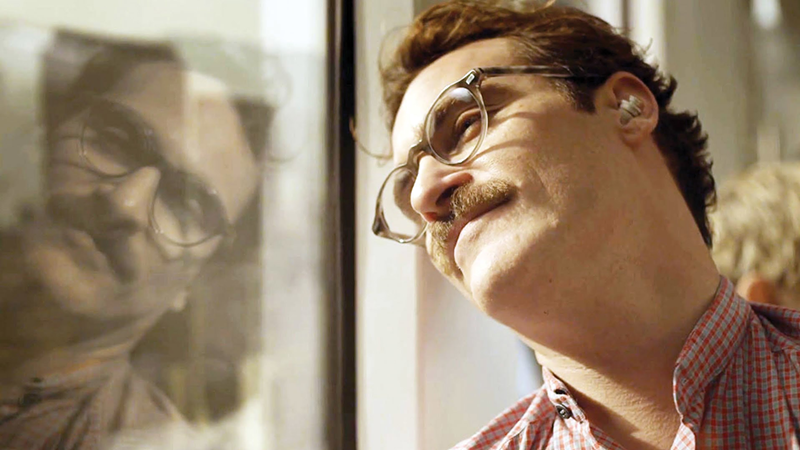Astra Taylor’s 2008 documentary Examined Life turned the spotlight on a collection of modern philosophers — including Cornel West, Judith Butler, Peter Singer and Michael Hardt — walking and/or riding along city streets while riffing on the human condition in contemporary times. One of the segments focused on the relationship between man and nature, specifically in regard to man-made waste, which we tend to think of as something outside the natural world (think biodegradability), but the more philosophical take asks us to see our man-made products as human by-products, thereby rendering them as “natural” as any other material in the environment.
What we make — the artificial elements out there — by their very nature are “natural,” even “human,” right? Steven Spielberg toyed around with this notion in Artificial Intelligence, his hijacking of Stanley Kubrick’s Pinocchio adaptation, which mined American history to debate whether or not humans could love and accept love in return from social/technological constructs.
Writer-director Spike Jonze’s Her picks up the discussion but tickles and teases us with emotional intangibility. In an undefined future-scape, Theodore (Joaquin Phoenix) drifts along, penning personal letters for those who have trouble expressing emotions, dictating them into a computer and then printing them out as “handwritten” hard copies to be forwarded to loved ones. He’s struggling to adjust to life without his soon-to-be ex-wife Catherine (Rooney Mara), who he still dreams about and obviously longs for, but couldn’t commit to when she was around. Theodore says the right things, manufacturing details and memories for his clients in ways that he can’t quite figure out how to accomplish in his own interpersonal relationships. He needs a surrogate.
And one arrives in the form of a new personal computing operating system programmed to be more intuitive. Theodore, like seemingly everyone, agrees to the upgrade. One night after work, he finds himself answering questions posed by the operating system and then suddenly a raspy voice (Scarlett Johansson) playfully greets him. Within minutes, they have settled upon a name (Samantha), and the two of them are off on what amounts to a digital-age first date.
Samantha, thanks to such intimate access to Theodore’s life (his email correspondence and web surfing history) and the ability to scan all of this data in microseconds, knows him better than anyone. What emerges, though, is the sense of curiosity in Samantha; an evolving desire to get to know “herself,” and it is fascinating to watch Theodore embark on this journey with her. He helps her build memories with him, and in the process Theodore becomes a more fully realized person as well.
Could this be love? All of the evidence from Jonze resoundingly affirms this and does so without reservation. Samantha “experiences” pleasure with Theodore, shares his bed (along with almost every waking moment) and longs for him during their time apart. Theodore worries briefly — in an all-too-human way — how they will be accepted, but soon discovers that human-OS relationships become common so quickly that it is as if society has evolved to almost utopian degrees.
But what happens, then, when an intuitive OS matures past its human partner? Will it become more human, achieving some type of post-human status? Samantha processes information far beyond Theodore’s understanding, and thus “feels” more, “lives” more.
Films like Artificial Intelligence and Steven Soderbergh’s Solaris constrain the potential of the “others” created from and by humanity by strapping them to people confined to their own limited understandings. In Solaris, the re-manifestation of Rheya (Natascha McElhone), the dead wife of troubled psychologist Kelvin (George Clooney), comes to realize that she will never be able to break free of Kelvin’s memories of her. The idea of her “return” feels romantic in a classic sense, but she will never be her own unique person; she will always be Kelvin’s less-than-ideal version of Rheya.
Jonze masterminds a way through this dilemma by allowing Samantha’s intuition to fully bloom. Her astonishing rate of “experience” pushes Theodore to take risks that he would not otherwise have assumed. Her highly evolved humanity triggers an emotional maturity in Theodore and in Phoenix; Jonze has a performer more than capable of walking us through this process. Phoenix starts out in a box, but when he breaks it open, he offers such a vivid reflection of the risks and rewards of life that he embodies the finest example of what it means to be human. (Opens Friday at Esquire Theatre) (R)
Grade: A
CONTACT TT STERN-ENZI : [email protected]


